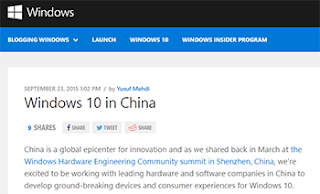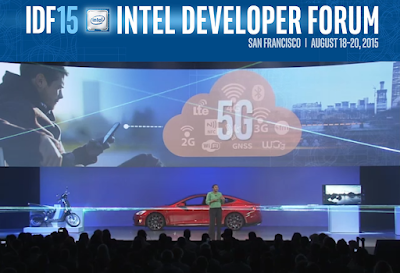Researchers from Oxford University, the University of Münster, the Karlsruhe Institute of Technology and the University of Exeter have created the world’s first all-photonic nonvolatile memory chip.
 A paper published this week in the journal Nature Photonics describes how intense pulses of light sent through a waveguide can change the state of Ge2Sb2Te5 (GST) material — the same as that used in rewritable CDs and DVDs. The pulse of light causes the material to melt and assume an amorphous structure.
A paper published this week in the journal Nature Photonics describes how intense pulses of light sent through a waveguide can change the state of Ge2Sb2Te5 (GST) material — the same as that used in rewritable CDs and DVDs. The pulse of light causes the material to melt and assume an amorphous structure.
Less intensive pulses of light cause the material to enter into a crystalline state. The difference in state affects how much light is transmitted in subsequent pulses, enabling data to be stored as optical bits as either 1s or 0s. The state can be preserved for extended periods of time. Moreover, the researchers say the optical bits can be re-written at frequencies of up to one gigahertz.
http://www.ox.ac.uk/news/2015-09-21-light-based-memory-chip-first-ever-store-data-permanently
https://www.kit.edu/kit/english/17407.php
http://www.nature.com/nphoton/journal/vaop/ncurrent/full/nphoton.2015.182.html
 A paper published this week in the journal Nature Photonics describes how intense pulses of light sent through a waveguide can change the state of Ge2Sb2Te5 (GST) material — the same as that used in rewritable CDs and DVDs. The pulse of light causes the material to melt and assume an amorphous structure.
A paper published this week in the journal Nature Photonics describes how intense pulses of light sent through a waveguide can change the state of Ge2Sb2Te5 (GST) material — the same as that used in rewritable CDs and DVDs. The pulse of light causes the material to melt and assume an amorphous structure.Less intensive pulses of light cause the material to enter into a crystalline state. The difference in state affects how much light is transmitted in subsequent pulses, enabling data to be stored as optical bits as either 1s or 0s. The state can be preserved for extended periods of time. Moreover, the researchers say the optical bits can be re-written at frequencies of up to one gigahertz.
http://www.ox.ac.uk/news/2015-09-21-light-based-memory-chip-first-ever-store-data-permanently
https://www.kit.edu/kit/english/17407.php
http://www.nature.com/nphoton/journal/vaop/ncurrent/full/nphoton.2015.182.html























